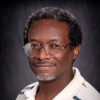Eugene Kennedy

Eugene Kennedy
Eugene Cullen Kennedywas an American psychologist, syndicated columnist, and a professor emeritus of Loyola University Chicago. He remained a professor of psychology at the university for several years. A laicized Catholic priest and a long-time observer of the Roman Catholic Church he wrote over fifty books on psychology, religion, the Catholic Church, and THE psychology of religion, and also published three novels, Father's Day, Queen Bee, and Fixes. He wrote a column for the Religious News Service, distributed by the...
NationalityAmerican
ProfessionPsychologist
Date of Birth18 August 1928
CountryUnited States of America
St. Pope John XXIII called for the Second Vatican Council because he understood, as no Holy Father had in a long time, religion spoke to and found its language and symbols - its entire sense of the sacramental nature of existence - in the imagination that reveals not just the penalties of living, but the wonder and awe of our existence.
The seminary of the future must relate itself to flesh-and-blood men, or it provides a framework that only talks about the people of God but never really shares life with them.
The world of hierarchy has come to an end. Don't fight with it. Let it disintegrate.
Our human experience, like the World War II Ultra code-breaking machine, catches the heavy traffic of messages about what we really do and what is done to us every day.
Pope Francis has aimed a blow at what the whole hierarchical system is built on: a graded system with the higher clergy in the skyboxes, the devoted religious in festival seating, as they say of the crowds at rock concerts, and, on the bottom, the laity in standing room only.
The whole world feels that it knows Francis, not so much because he follows Francis of Assisi but because he is always himself. We have seen him pay his own hotel bill and heard that Francis called Buenos Aires for a pair of ordinary black shoes, like John XXIII, who preferred stout peasant shoes to the traditional papal footwear.
Pope Benedict XVI's resignation is big on buzz but is not the stunning surprise claimed by many pundits. It is rather a further example of the German theology professor's style that informed his years as head of the Congregation for the Doctrine of the Faith, his term as pope, and the formation of his legacy to the church.
Wherever you find 'men together' - writing the rules, as at exclusive golf or other men's clubs, businesses, and lodges where they wear elaborate robes and funny hats - women are kept completely outside if possible and, when grudgingly admitted, to highly restricted areas or token status.
The perception of the horizon is an earthbound event; all horizons disappear in space, and we are left shorn of the sweet roots that have held us to the earth, challenged to imagine what is truly present just before us, a unified and seemingly limitless universe.
The priesthood is not dying, but the clerical state is dead. It needs to be buried, preferably with a Viking funeral in Boston Harbor so nobody can miss the spectacle of its passing.
The truth of faith is a slender, glowing element that runs through even the seemingly ordinary and undramatic moments of existence. Even at low intensity, it is a steady source of illumination. Such religious truth is powerful even when it seems faint, even when it seems obscured by the larger events of history.
The real test of friendship is: can you literally do nothing with the other person? Can you enjoy those moments of life that are utterly simple?
Francis seems familiar because Catholics have already known him in the Vatican II priests who have been their pastors and sacramental ministers over the years since that council brought new life to an old church. Catholics have known him in the bishops and priests who brought the spirit of the council to their dioceses and parishes.
There would be no need for love if perfection were possible. Love arises from our imperfection, from our being different and always in need of the forgiveness, encouragement and that missing half of ourselves that we are searching for, as the Greek myth tells us, in order to complete ourselves.